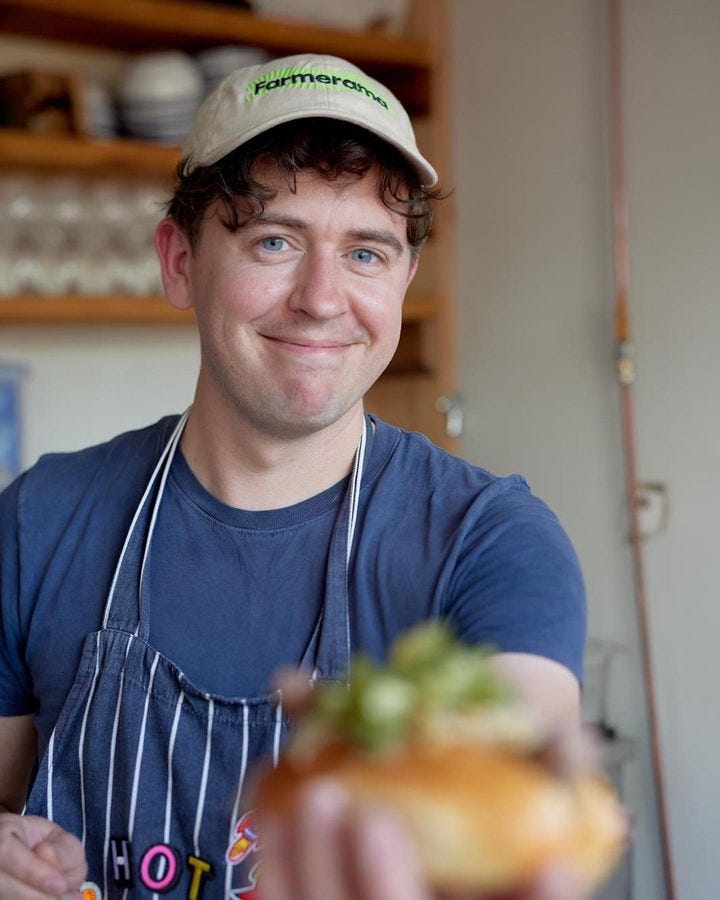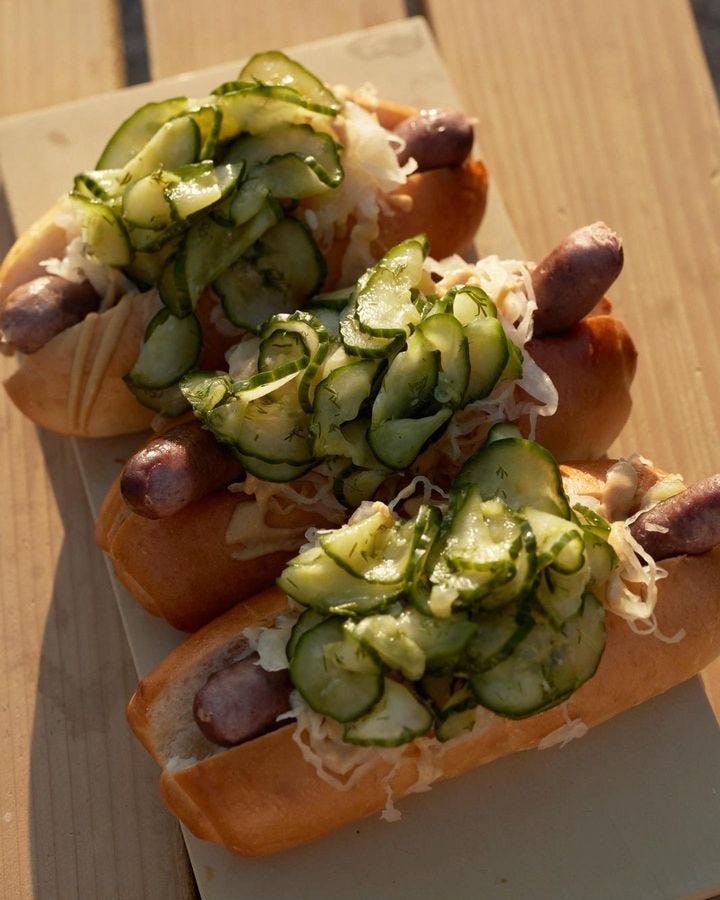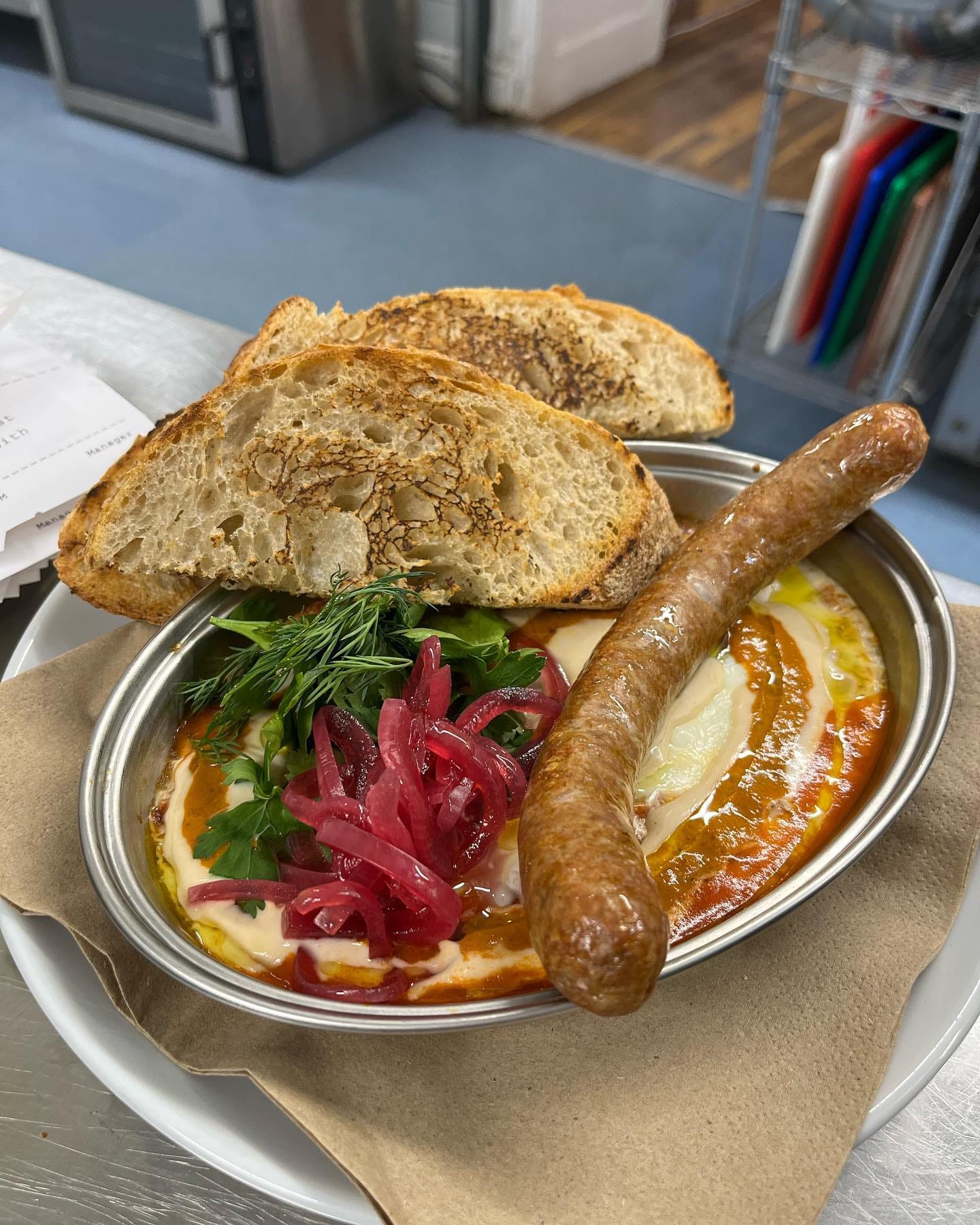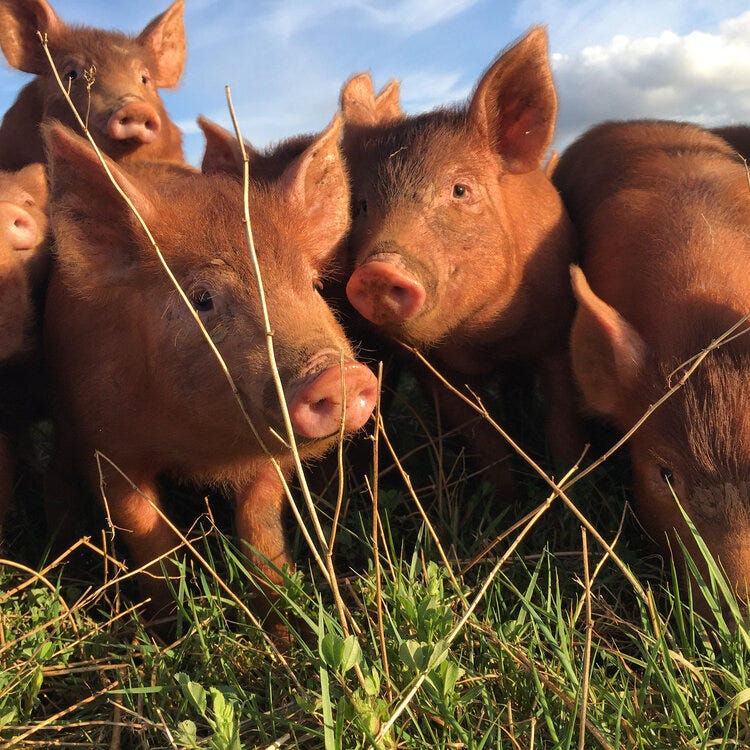Owen's Sausages and Hams [WFJ #86]
A "sausage culture" comes to Frome
On a visit to the small town of Åre in Sweden, not far from where his partner Hanna is from, Owen Barratt came across the best sausage he’d ever had. “It was a really transformative experience,” he tells the WFJ. “We paid like 20 quid for four sausages, but they were extraordinary. They really opened my eyes to how excellent they can be.”1
The contrast from typical extruded tubular minced meat in the UK is, in Owen’s words, resultant of the “sausage culture” that exists in Nordic and Germanic countries. “It's entirely different. Sausages are revered, and they make them with care. I sort of fell in love with that experience of going to a Scandi sausage bar.”
Now, Owen is bringing some semblance of that experience to Somerset. Frome, precisely, in the form of Owen’s Sausage and Hams2 – his new sausage shop-slash-bar behind the gallery at Station Approach. After its first outing last Saturday, and for lack of a better comparison, expectations for the hero dish are within the realm of hot dogs – specifically a frankfurter-like smoked sausage Owen makes from scratch, in a bun, with accoutrements such as burger sauce, dill pickles, and sauerkraut.
As we’ve already discovered, well-known comparisons to a Scandi-style sausage bar concept are a bit hard to find this side of the North Sea. If we’re talking sausages in particular though, similarities are somewhat easier to unearth locally – Coombeshead Farm in Cornwall is famous for its Mangalitsa pigs and luxurious bed and breakfasts, but not so much for its frankfurters, which have in the past helped furnish a couple of this author’s Super Bowl parties (unfortunately, said frankfurters seem to be much rarer these days).
Anyway, Owen’s sausage-based experiences, as well as general food and farming ones, are heavily influenced by Coombeshead, while his previous life as chef and co-owner of Monty’s Deli plays a part too. Monty’s – which started out as a ‘Jewish soul food’ stall at Maltby Street market, South London, before opening a New York-style deli-restaurant in East London – became something of a household name for its reuben sandwiches, until it fell victim to Covid at the end of 2021. “I'd been making all-beef frankfurters, for Monty’s, as it's part of Jewish deli culture,” Owen says. “But these [Swedish] ones were so, so completely different to anything that I was making.”
Local people have already started to get a taste of what he's on about, even before opening his shop. Partnering up with Max Halley – another name familiar to the London sandwich circuit and who also, serendipitously, ended up this end of the country – Owen’s put on sausage parties in Frome, Midsomer Norton, and Sailsbury.
Prior sausage practice is, for a job that’s perhaps surprisingly a precise art, essential. Above-and-beyond attitudes to provenance and sourcing? Desirable. While at Monty’s, trying to find 600 kilos of brisket a week, preferably from responsible, small-scale producers, was an ideal that Owen says “got away from” him, especially when having to run multiple other parts of the business. “It was pretty impossible for us not to plug in to the bigger meat industry.”
One advantage with Owen’s Sausage and Hams though, is its proximity to food producers and their respective networks, allowing for a more personable connection to farms and farmers. As much as they have something available, Owen gets pork from Gothelney Farm near Bridgwater, which he then butchers in-house. “They’re a cut above the rest in terms of welfare and quality. I get one pig a month from Gothelney,” he says, “which at the moment is just about right.”
As for beef, that currently comes from Ashlack Estate (co-run by a former chef at Rye Bakery) in the Lake District, if not H E Williams, or Meadowsweet Farm eight miles out of Frome.3 Meadowsweet was a big reason why Owen ended up in the area, caught up as he was by the idea of living on a smallholding and producing food from it. “That didn't work out, just for practical life reasons,” Owen says. “Though, every time we go to see Hannah and Peter on the farm, we’re like, ‘I can't believe we didn't do that, because it's so perfect.’”
Bread, obviously being a main component of what Owen’s doing, receives similar attention. And, as Rye Bakery – next door to Owen’s shop – and Gothelney Farm are part of the South West Grain Network, which links bakers and grain-growers, some sort of connection was inevitable. “Given that a lot of Rye Bakery's flour comes from Gothelney Farm, that was really cool to be able to use in the bun,” Owen says. “And you can see the mill from the sausage bar, so it'd be kind of crazy not to use that flour in the buns. It's a really nice story.”
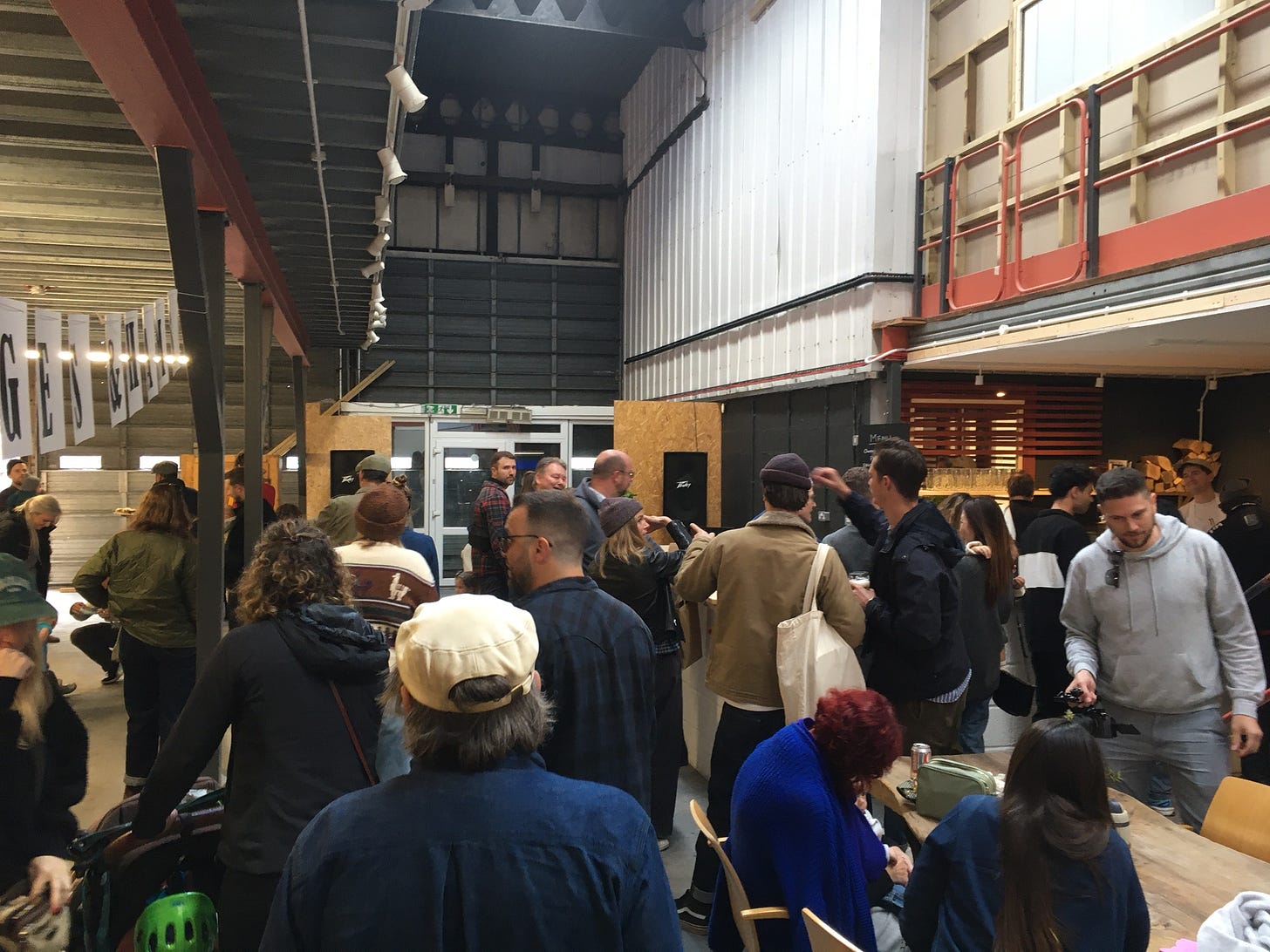
What we’re beginning to touch on here is the general growing appreciation for the confluence of food and farming. Helped in no small part by the transparent nature of local, agroecological and/or regenerative systems – in this instance, the beef smallholding that’s helping restore land from a state of dilapidation to one buzzing with biodiversity; to the pig and cereal farm operating outside of the commodified food system in order to work more in harmony with nature, rather than against it.
For Owen, the joiner between food and farming became increasingly apparent while listening to his brother’s podcast, Farmerama, which his brother insisted was exclusively about farming – not food. “I was like, no, it's a food podcast,” Owen says. “I guess I watched the two worlds come together.”
In what continues to be one of the biggest struggles sustainable food and farming endures, none of this necessarily translates into enthusiasm towards the appropriate recompense – in this case, £8.50 for a sausage in a bun. That said, if opening Saturday was anything to go by, things are off to a good start.
“Everything sort of worked,” Owen says. “People were waiting a little bit longer than I would like – at peak times, 20 minutes. But that's still pretty good, given twice the amount of people turned up than anybody was expecting.”4
For those interested, Undersåkers Charcuteriefabrik is the exact place from which Owen attained ultimate sausage enlightenment. “My favourite,” he says, “is their Isterband – a fermented beef and barley sausage.”
Yes, hams literally play a part in all this (see on opening night a ‘plate of ham with saurkraut and mustard’), but as you’ll find, I’ve run out of the space required to talk about it
Owen adds: “I use H E Williams butchers for lamb and beef. Nigel is an expert butcher. His lamb from the Gower is excellent and I get a few bits from the body of beef they get in from Taunton. They are brilliant butchers, they get whole carcasses and use every part, just as it should be.”
Also worth noting Wiltshire-based Rude Giant — the brewery who, like Somer Valley, are growing their own barley — feature on Owen’s bar



